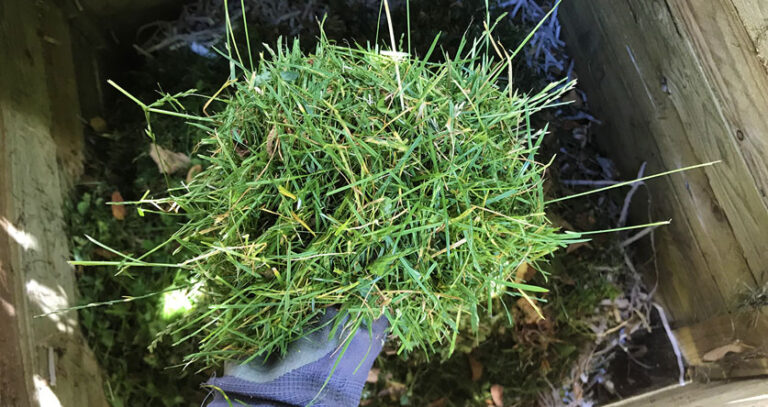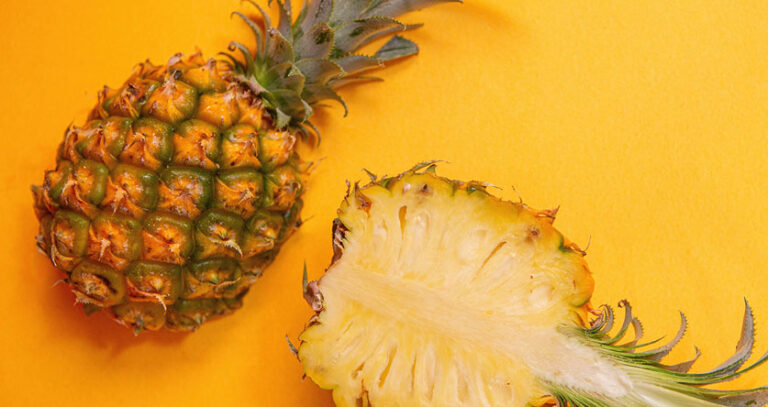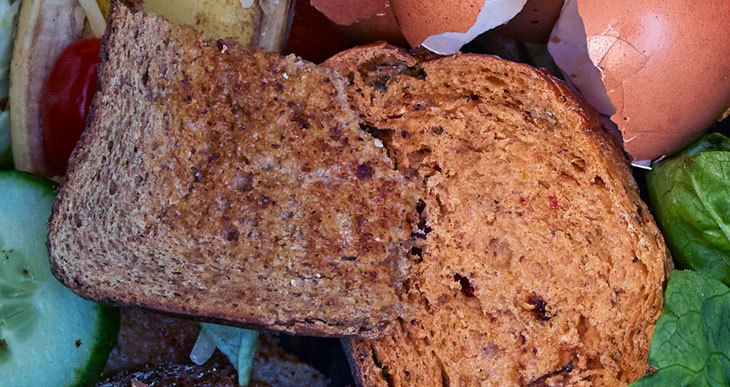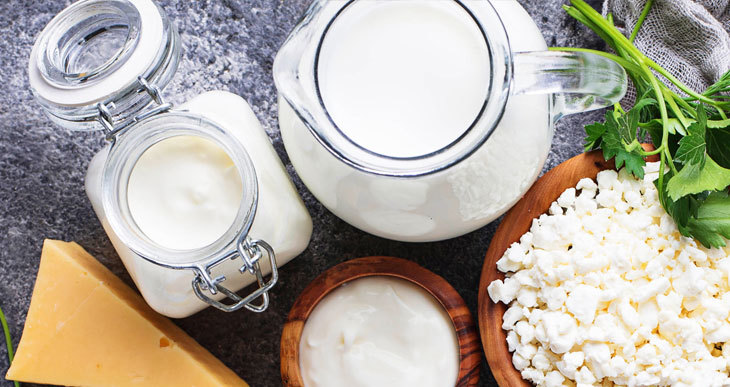Mushroom Compost Vs Cow Manure (Choose Wisely!)
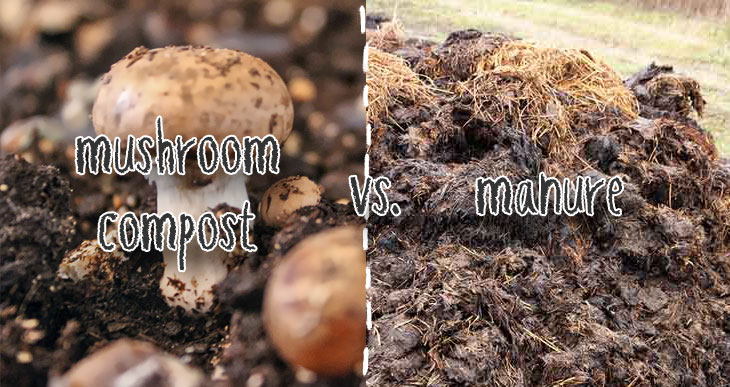
Mushroom compost and cow manure are two soil supplements containing animal droppings with multiple uses in the garden.
When mature, they both look like rich soil and smell earthy.
But what makes mushroom compost and manure different, and is one better than the other?
Let’s measure these soil nourishers against each other to see if there’s a winner.
Difference Between Mushroom Compost And Manure
Mushroom compost is the leftovers of what’s used to grow mushrooms, and cow manure is cow droppings. Mushroom compost is better suited to certain types of plants. And manure needs to be matured before use.
Mushroom compost and cow manure have different ingredients, preparation methods, and pH values.
Mushroom Compost and Manure: Ingredients
Both mushroom compost and manure contain animal dung. Mushroom compost has just a little, and cow manure is all or almost all dung.
Here are the other things you’ll find in these soil enhancers:
Mushroom Compost
Mushroom compost starts as a substrate for growing mushrooms – a material that gives mushrooms all the moisture, energy, and nutrients they need to, well, “mushroom”.
The ingredient list differs slightly but usually includes straw from horse stables, hay, corncobs, chicken manure, and gypsum (a mineral found in rocks). Cottonseed hulls, peat moss, soybean meal, and lime are often added to the basic mixture.
After mushrooms have been grown and harvested, the substrate is given a second life as mushroom compost for gardens. (This is the stuff you can buy from nurseuries and garden centers).
Manure
Manure doesn’t have a long ingredient list. It’s either just cow dung or cow dung mixed with straw or sawdust from bedding or litter areas (which also adds urine to the compost recipe).
Comparing Mushroom Compost and Manure: Preparation
Mushroom compost and manure come in fresh and mature forms. Hot-composted, mature forms are the safest for your garden, as the heat destroys harmful bacteria and weed seeds. They’re also more pleasant to work with – fresh mushroom compost and cow manure smell anything but fresh!
Here’s a glance at how mushroom compost and cow manure are made:
Mushroom Compost
The mushroom substrate ingredients are combined and composted at high temperatures. When the substrate is ready, it’s put somewhere dark and cool to grow mushrooms.
After the mushrooms are done with the substrate, it’s pasteurized with steam to zap insects, bad bacteria, and mushroom bits. It then becomes mushroom compost, ready for your garden.
Manure
Cows eat grass or grain, digest this organic matter, and then push it out of their bodies. After the plants have worked their way through all four parts of cows’ stomachs and been expelled, they become manure.
Manure is either used in its fresh form (looking and smelling like dung), pasteurized, or mixed with straw and hot-composted and then matured to become safe for your plants.
Occasionally you might get fresh manure from a local farm. But you shouldn’t use this fresh product directly on your plants. It is very high in nitrogen when fresh, and you run the risk of burning plants. A good alternative is to dilute it with mature compost, or till in into your topsoil during winter, so that it has time to naturally decompose.
Comparison of Mushroom Compost Vs Manure: pH
The pH of these two materials can vary. Mushroom compost’s pH depends on what’s in it, and the pH of manure depends on what the cow ate.
Here’s an idea of their pH ranges:
Mushroom Compost
Mushroom compost’s pH tends to be alkaline, though it ranges from about 6 to 8.
Manure
Cow manure usually has a neutral pH, though it can be slightly acidic, ranging from 5.9 to 7.
Is Mushroom Compost Better Than Cow Manure?
Mushroom compost and cow manure are both valuable additions to your garden. They both improve soil quality to grow healthier plants.
Mushroom compost is an especially good fit for your garden if you want to:
- Counteract acidic soil.
- Grow veggies that don’t like acidic soil. Brassicas, like broccoli and cauliflower, adore mushroom compost!
- Enrich topsoil layers before planting grass seeds.
Mushroom Compost Vs Cow Manure: Pros And Cons
Each material has certain advantages and shortcomings. The table below sums up some of mushroom compost’s and cow manure’s strong and weak points:
Mushroom Compost | Manure | |
Pros | #1: Lowers the pH of acidic soils. #2: Makes an excellent mulch. #3: Helps grow healthy veggies. | #1: Can fire up hot-composting systems. #2: Helps neutralize soil pH. #3: Is super for keeping plants healthy and green. |
Cons | #1: High in soluble salts, which are bad for seeds (other than grass seeds), young plants, and salt-sensitive plants, such as rhododendrons, blueberries, and azaleas. #2: Can stop acidic-soil-loving plants from thriving. #3: Might contain traces of pesticide used to kill fungus gnats (organic mushroom compost should be pesticide-free). | #1: Can contain disease-spreading bacteria if not hot-composted properly. #2: Can become contaminated by weed seeds if not stored carefully. #3: Cows given antibiotics and other drugs produce manure containing these drugs (organic farms shouldn’t give their cows drugs). |
Which Is Better: Compost Or Cow Manure?
Whether mushroom compost or cow manure is better depends on what you’ll be doing with it. The right soil supplement for your garden does what you want it to do.
If you want to counteract acidic soil, grow veggies that don’t like acidic soil, or encourage grass seeds to grow, mushroom compost can help you achieve these gardening goals.
Try manure if you hope to neutralize soil pH, help your leafy greens and other veggies stay healthy throughout the growing season, or you’re after something to activate your hot-composting system.
Remember: The only manure that should come close to your veggies is one that’s been pasteurized or thoroughly hot-composted.



